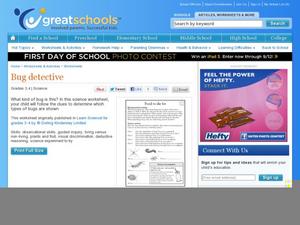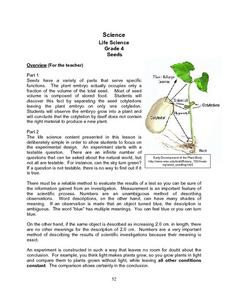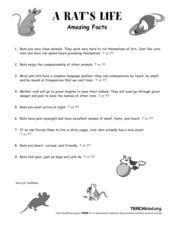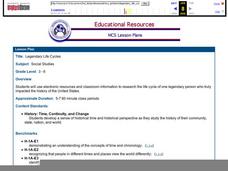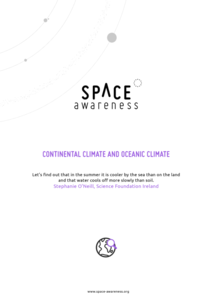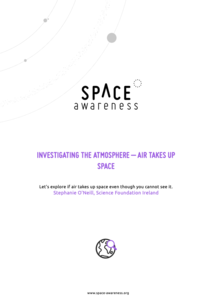Curated OER
Food & Science - How Healthy is Your Diet?
Learners experiment with various foods to determine fat and starch content. They rub jam, peanut butter, bananas, and other foods in a small circle on a piece of paper, and observe the results. If there is a high fat content in the...
Curated OER
WET Science Lesson #11: How Light Affects Water
Scientists listen to the story of Wadja Egnankou who works to save African mangrove forests. They experiment with refraction and the introduction of particulate matter to water. They conclude with creative writing about the need for a...
Curated OER
Designing a Germination Experiment - Part 1
Students experiment with seeds and germination. In this natural science lesson, students discuss the stages of germination. Students engage in a 4 part hands on science activity to view the process of germination.
Curated OER
All About Germs
How do people get sick? Youngsters explore the world of germs and microbes with a lab sheet and science investigation. After identifying the unhygenic practices in a picture of a kitchen, fifth graders conduct an experiment with bread...
Curated OER
Bug Detective
What happens when a living thing dies? After reading a paragraph of background knowledge on the life cycle of bugs, third and fourth graders work through four clues to figure out which bug is which. When they finish, they can study the...
Berkshire Museum
Adopt a Schoolyard Tree
Help young scientists connect with nature and learn about trees with a fun life science lesson. Heading out into the school yard, children choose a tree to adopt, taking measurements, writing descriptions, and drawing sketches of it in...
Curated OER
Life Science - Seeds
Fourth graders participate in a scientific experiment involving growing lima beans. Students plot information gathered on included charts and graphs. Students use the steps of the scientific method throughout this experiment.
SurfScore
Kodable
Prepare young scholars for life in the twenty-first century with this introduction to computer coding formatted as a fun problem solving game, this resource is a great way to develop children's sequential thinking skills.
Curated OER
A Rat's Life
Here is a two-page instructional activity on rats and mice. Learners answer nine true/false questions about rats and mice, then compose answers to seven short-answer questions about these two rodents. Finally, they must compose a...
Curated OER
Legendary Life Cycles
Upper elementary historians research a legendary person who had an impact in the the history of the United States. Learners research the life of their person of choice, and construct a legendary timeline using computer software which...
Curated OER
The Impact of Fishing
Young scholars explore the concept of fishing as it relates to oceans and how some fishing practices can damage the health of the marine ecosystems. In this activity on the impact of fishing, students research the many places in the...
Curated OER
Life in a Drop of Pond Water
Young scholars investigate living creatures that inhabit a pond and explore how various organisms satisfy their needs within their environments. In this life in a drop of pond water lesson, students examine microorganisms under...
Curated OER
Out and About: The Science of Sport
Young scholars take a closer look at sports science. In this hands-on learning lesson, students may visit the Science Museum, the Life Science Centre, or the Wimbledon Lawn Tennis Museum online or in-person to discover details related to...
Curated OER
Discovery Science Center Activities
Fourth graders complete a variety of experiments to meet science goals. In this life sciences lesson, 4th graders make yogurt, discover the attraction of opposite charges in electricity, learn the effects of glaciers, and explore...
Space Awareness
Fizzy Balloons - C02 in School
Carbon dioxide is a very important gas; it is present in the air, used in cooking, and supports plant and animal life. Scholars investigate the properties of carbon dioxide with three different activities. They experience a color change,...
Cornell University
Sun or Water? or Both?
Over the course of 10 days, young scientists observe their cups of seed and soil—one that gets sun and water and one that gets no sun and only water. Then they reflect on the results of the experiment to determine if their hypothesis was...
Space Awareness
Continental Climate and Oceanic Climate
There's nothing better than a cool breeze blowing in from the ocean. Scholars explore how water affects change in temperature using a hands-on experiment on climate. They use measurement tools to compare the continental and oceanic...
Space Awareness
Water is a Heat Sink
One of the key objectives of Europe's Copernicus Earth program is to monitor the temperatures of the oceans and seas on Earth. Young scholars learn the effects of different heat capacities through two experiments. These experiments...
Space Awareness
Investigating the Atmosphere - Air Takes Up Space
How do you know there is air? Can you see it, smell it, feel it? To begin the investigation, learners watch a video and discuss what they know about air and the atmosphere. Then, they participate in five different hands-on, inquiry-based...
Sea World
Arctic Animals
Discover the coldest animals in the world with a lesson about the Arctic habitat. Kids use a glossary and information sheet about animals found in the Arctic Circle to complete several activities, including tracking the lemming...
San Francisco Public Utilities Commission
Water from the Well
How much water does it take to brush your teeth? How about to wash your clothes? Perform an experiment that measures water usage in everyday tasks and compares them to the days before indoor plumbing, specifically the California gold...
Curated OER
Seed Germination
Students germinate a Mung Bean seed. In this seed instructional activity students conduct an experiment germinating a Mung Bean. They apply three different treatments to the seeds: dry, moist, and underwater incubation.
Curated OER
Organic and Inorganic Waste
Students conduct a scientific investigation about organic or inorganic waste. For this organic or inorganic waste lesson, students create a compost heap to determine the difference between inorganic and organic waste. Students record...






